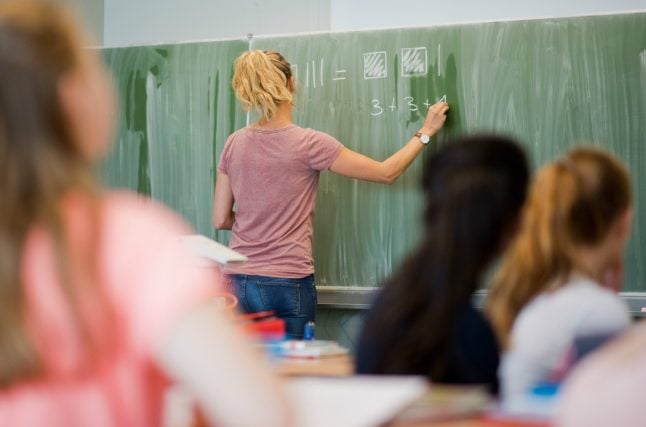German states are struggling to combat an increasing shortfall in teachers. Experts say that a cut back in funding for teacher training at universities combined with a growing birthrate and higher immigration have contributed to the problem.
“The authorities didn’t wake up to the predictions [about growing enrolment] soon enough,” says Heinz-Peter Meidinger, head of the German Teachers’ Federation. “Politicians and the federal education ministry should have told the universities not to reduce their teacher training courses so sharply.”
Meidinger adds that federal states, which are responsible for education policies, were slow to react to a rise in the birth rate. “There should have been a push to hire new teachers at a much earlier stage.”
“I predict the situation will get worse in the states in the east and in the city states, particularly in Berlin,” says Meidinger. “But in Bavaria, Baden-Württemberg, Lower Saxony and North Rhine-Westphalia the supply of classes is threadbare.”
In some states, such as Berlin the shortfall is already hitting hard. The federal capital said in June that it lacks 1,250 teachers – an all time high. The shortage means that classes are increasingly being cancelled.
School kids no longer rejoice when they hear that their class has been cancelled, insists Hannes Leiteritz, head of the School Pupil Council. Nowadays they fear for their future, he says.
“Fewer classes means less is being learned. And what you miss out on can’t be caught up on years later,” says Leiteritz, who is in his final year of school.
Parents are also concerned. “From our point of view, the teacher shortage is worse than it’s ever been,” said Stephan Wassmuth from the National Parents’ Association. “We are a meritocracy, one should not forget that. Parents are afraid that their children aren’t learning the basics.”
Bavaria has announced an increase of 700 new places in its primary school teacher training programme. Saxony is trying to convince trainee teachers to teach in the countryside by offering them up to €1,000 more to do so. Brandenburg has changed its rules to allow teachers to continue working after retirement if there is an urgent need.
In Berlin the shortage is the most acute in the whole country. City authorities there have taken various measures to try tackle the growing problem. A new project called “teaching instead of waiting tables” encourages masters students to take a half-year or full-year contract at a school.
The central focus in the capital has been on encouraging professionals to make a career change to teaching. According to Tagesspiegel, Berlin has been focused on so-called Quereinsteiger since 2014. But even the 800 people invited to interview in June for the Quereinsteiger programme would not have covered the shortfall, the city admitted.
“Especially in the primary schools we need educators who are well trained to deal with the high level of diversity among the pupils,” he said.



 Please whitelist us to continue reading.
Please whitelist us to continue reading.
Member comments